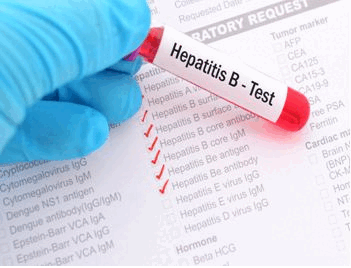SEROPREVALENCE OF THE VIRAL MARKERS OF HEPATITIS B, HEPATITIS C, AND HIV AMONG MEDICAL WASTE HANDLERS IN SOME HOSPITALS IN SANA'A CITY- YEMEN
Keywords:
ELISA, HBsAg, HCV, HIV, Hospitals, Medical Waste Handlers, Sana'a, YemenAbstract
Background and Objective: Hepatitis B virus (HBV), hepatitis C virus (HCV) and human immunodeficiency virus (HIV) are highly contagious pathogens that threaten medical waste handlers who are highly exposed to these viruses due to the nature of their work. To date, little data is available on the prevalence of viral markers (HBV, HCV, and HIV) among medical waste handlers in Sana'a city, Yemen. Hence, this work was conducted to enhance knowledge of the prevalence of viral markers among medical waste handlers working in some hospitals in the capital, Sana'a.
Methods: A cross-sectional prospective study was conducted on 120 randomly selected medical waste handlers from January to June 2022. A pretested and designed questionnaire was used to collect the required data. Total 5mL of venous blood was collected. Then blood was tested for hepatitis B surface antigen and anti-HCV, as well as HIV antibody, were detected using a qualitative by rapid test cassette and positive results were confirmed by ELIZA technique.
Results: The overall positive rates for HBsAg, anti-HCV, and HIV were 9.17%, 5.0%, and 0.0%, respectively, based on the rapid test. No significant differences were detected between socio-demographic characteristics and hepatitis B and HCV infection. High rates of hepatitis B and C infection were found in the age group ≥41 years (9.17%) and 21-30 years (8.77%), respectively. These two viruses have also been detected among married people with a history of acute infection between 7-9 times. There was a significant correlation between HBsAg positivity and history of blood transfusion as well as between HBsAg and anti-HCV positivity and history of hepatitis B vaccination. ELISA confirmed that the rate of HBsAg was 4.17% and anti-HCV was 2.5%.
Conclusion: Appropriate training, immunization against HBV, and regular motivation of medical waste handlers on the practices of universal standard precautions are recommended to reduce transmission of hepatitis B virus, hepatitis C virus, and HIV among medical waste handlers.

Peer Review History:
Received: 7 April 2022; Revised: 12 May; Accepted: 14 June; Available online: 15 July 2022
Academic Editor: Dr. Muhammad Zahid Iqbal , AIMST University, Malaysia, drmmziqbal@gmail.com
, AIMST University, Malaysia, drmmziqbal@gmail.com
Reviewers:
 Rusmir Baljic, Clinic for infectious diseases, Clinical center University of Sarajevo, Bosnia and Herzegovina. rusmir.baljic@gmail.com
Rusmir Baljic, Clinic for infectious diseases, Clinical center University of Sarajevo, Bosnia and Herzegovina. rusmir.baljic@gmail.com
 Dr. Bilge Ahsen KARA, Ankara Gazi Mustafa Kemal Hospital, Turkey, ahsndkyc@gmail.com
Dr. Bilge Ahsen KARA, Ankara Gazi Mustafa Kemal Hospital, Turkey, ahsndkyc@gmail.com
 Prof. Dr. Hassan A.H. Al-Shamahy, Sana'a University, Yemen, shmahe@yemen.net.ye
Prof. Dr. Hassan A.H. Al-Shamahy, Sana'a University, Yemen, shmahe@yemen.net.ye
 Dr. Jucimary Vieira dos Santos, Hemonorte Dalton Barbosa Cunha, Brazil, jucimaryvieira@yahoo.com.br
Dr. Jucimary Vieira dos Santos, Hemonorte Dalton Barbosa Cunha, Brazil, jucimaryvieira@yahoo.com.br
 Dr. Bilge Ahsen KARA, Ankara Gazi Mustafa Kemal Hospital, Turkey, ahsndkyc@gmail.com
Dr. Bilge Ahsen KARA, Ankara Gazi Mustafa Kemal Hospital, Turkey, ahsndkyc@gmail.com
Downloads

Published
How to Cite
Issue
Section

This work is licensed under a Creative Commons Attribution-NonCommercial 4.0 International License.









 .
.